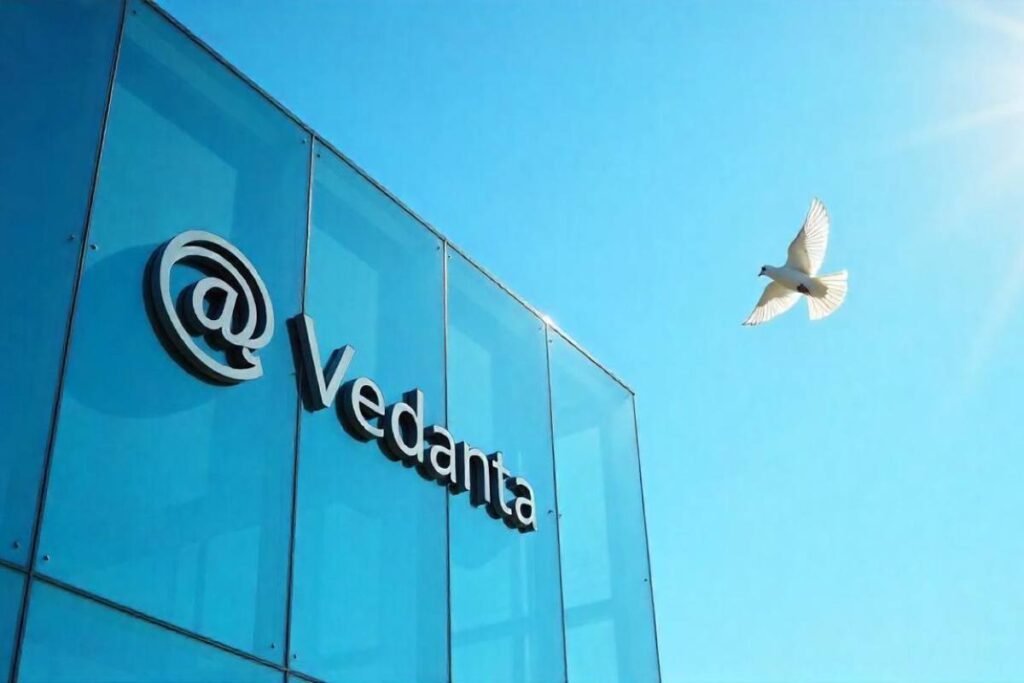Vedanta demerger plan creditors vote is making headlines in Indias corporate sector. Investors are closely watching how creditor decisions may shape the future of Vedanta and its business structure.
As Vedanta Limited moves forward with its plan to split its diverse business units into independent companies one key step stands in the way the approval of creditors. This vote is more than just a formality its a legal requirement and a financial signal.
Whether youre a shareholder or just tracking market trends understanding what this vote means could help you navigate upcoming changes and potential investment opportunities.
What Is Vedanta demerger plan creditors vote ?

Vedanta demerger plan creditors vote is about separating its various business arms into independent listed companies. These include aluminum oil & gas power base metals and steel.
The goal is to simplify the corporate structure unlock value, and attract sector specific investors. The plan was officially announced in 2023 and it gained traction quickly. But before anything is finalized the creditors those to whom Vedanta owes money need to vote.
The focus keyword Vedanta demerger plan creditors vote takes center stage because creditors have the power to block or approve the entire plan. Without their suppor the demerger cannot move forward.
Why Is Vedanta demerger plan creditors vote So Important?
The Vedanta demerger plan creditors vote is crucial for one main reason they are financially linked to Vedanta’s future. If the company splits their repayment conditions could change. So the law requires a vote to confirm their consent.
Under Indias Companies Act and the Insolvency and Bankruptcy Code IBC creditors must be consulted during large structural changes. In this case both secured and unsecured creditors must vote in favor by a 75% majority.
What Does Vedanta demerger plan creditors vote Mean?
The successful Vedanta demerger plan creditors vote means.
- Financial Trust Creditors believe each new company will be able to handle its debts.
- Regulatory Green Light This approval is one of the many steps before getting court and SEBI Securities and Exchange Board of India clearance.
- Investor Optimism When creditors support a plan, investors often feel safer investing in the company.
Vedanta still has to gain approvals from shareholders and the National Company Law Tribunal (NCLT).
How the Vedanta Demerger Plan Creditors Vote Impacts Company Structure
Vedantas goal is to break its large conglomerate into smaller focused companies each with its own listing and management. But before this change can take place creditor approval is mandatory.
The creditors vote ensures that every financial stakeholder is on board with how the debts, liabilities and assets will be distributed across the new entities. If even one segment carries an unfair share of debt it could fail independently risking default and legal challenges.
Risks Involved in the Demerger
Investors should also be aware of the potential risks:
- Legal disputes from unhappy creditors
- Operational delays
- Increased management cost in separate companies
- Regulatory roadblocks
These are common in large corporate restructurings.
Benefits of Vedanta demerger plan creditors vote ?

Vedanta demerger plan creditors vote that by demerging, they can.
- Attract focused investors
- Improve capital allocation
- Increase transparency
- Get better access to credit
- Boost long term shareholder value
Key Creditors in the Vedanta demerger plan creditors vote
The main creditors include leading Indian banks like SBI ICICI Bank Axis Bank and insurance giants like LIC. These institutions have lent Vedanta billions and their vote reflects confidence or concern about the company’s ability to honor commitments after the split. Their decision is crucial because if major creditors dissent it signals potential trouble in financial planning or execution.
Impact of Vedanta Demerger Plan Creditors Vote on Investors?
Investors especially retail shareholders are watching the Vedanta demerger plan creditors vote closely. Heres how it could affect them.
Share Price Volatility
The market reacts to uncertainty Before and after the creditors vote stock prices might swing. A positive vote could drive prices up.
Clarity in Business Segments
Post demerger investors can choose to invest in specific sectors like oil power or aluminum. This allows better portfolio diversification.
Improved Valuations
With each unit operating independently the company believes the market will assign better valuations. This could benefit long term investors.
Debt Reallocation Risks
If debt is not fairly distributed among the new entities it could hurt the financial health of some units. This is why creditors approval is critical.
Regulatory Delays
Even with a yes vote delays from regulators can affect shareholding structure and investor returns.
Expert Views on Vedantas Strategy
Market analysts have shared different views on this plan:
- Positive Unlocks value simplifies structure and creates growth opportunities
- Neutral Depends on how well the companies manage debt and execute plans
- Negative Some believe too many listed firms could confuse investors
A report from also mentioned Vedanta’s aim to cut debt and improve operational efficiency.
Timeline of the Demerger Process
Here is a simple breakdown of the Vedanta demerger plan timeline.
| Step | Status |
|---|---|
| Demerger announcement | Done (2023) |
| Board approval | Done |
| Shareholder & creditor vote | Creditors done |
| SEBI and NCLT approvals | Pending |
| Record date for shares | To be announced |
| Final listing of new firms | Expected in 2025 |
What Makes the Vedanta Demerger Plan Unique?

Unlike regular corporate demergers, Vedanta’s plan involves breaking down a highly diversified conglomerate into six independent entities—each focusing on a specific sector like aluminum, oil & gas, and steel.
This large scale transformation is not just a structural change but also reflects a shift toward strategic modernization and long-term value creation.In fact, such strategic transitions align with the ongoing wave of com-solutions-digital-transformation/ highlighting how legacy corporations are adapting to emerging industry dynamics.
Conclusion
The Vedanta demerger plan creditors vote is more than just a regulatory step its a defining moment for the future of Vedanta and its investors. As the company aims to split into focused entities creditor approval plays a central role in deciding whether this ambitious plan will move forward.
A favorable vote means smoother execution better valuation for each segment and clearer investment choices for shareholders. On the other hand, rejection could delay or derail the entire process leading to uncertainty in the market.
For investors this is the time to stay informed analyze developments and prepare for the shifts that may follow. Whether you’re a long term shareholder or considering a new investment understanding the role of creditors and how their vote shapes the company’s next steps is essential.
FAQs
What is the Vedanta demerger plan?
It is a restructuring where Vedanta Ltd. will split into six separate listed companies allowing better business focus and ownership clarity.
Why did creditors need to vote?
Since Vedanta has debts, creditors must approve major changes like demergers under Indian law.
What was the result of the creditors vote?
Over 90% of creditors approved the plan indicating strong confidence in the companys financial stability.
What happens after the creditors approval?
Vedanta will now seek approvals from SEBI, NCLT, and shareholders before finalizing the demerger.
Will I get new shares if I own Vedanta stock?
Yes Vedanta will follow a mirror shareholding model so you’ll get shares in each new company based on your current holdings.
Are there risks in this plan?
Yes like how debt is split execution challenges, and regulatory delays. But the creditors vote lowers some of that risk.


